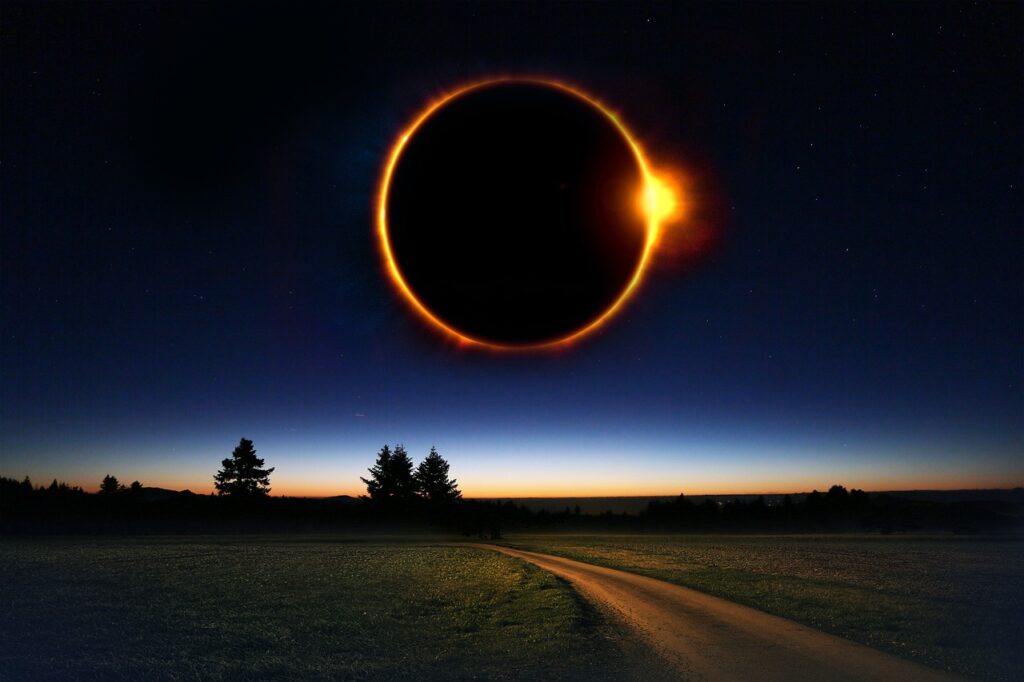
In 2025, the world will be treated to four spectacular eclipses, including two lunar eclipses and two solar eclipses. While many of these events will be visible from different parts of the globe, Pakistan will only experience one of them—a total lunar eclipse. Let’s explore the details of these astronomical events and when they will happen.
The year will kick off with a total lunar eclipse, also known as a “Blood Moon,” which will occur on March 14, 2025, at 08:57 am Pakistan Standard Time (PST). Unfortunately, this event won’t be visible in Pakistan. However, it will be seen in various parts of Europe, Australia, Africa, North America, South America, and even across the Pacific, Atlantic, Arctic, and Antarctica. Lunar eclipses happen when the Earth passes directly between the Sun and the Moon, casting its shadow on the Moon’s surface. These are fascinating to witness, and this particular eclipse promises to be a striking one for those who will see it.
Later in the month, on March 29, 2025, the first partial solar eclipse of the year will take place. This eclipse, though visible from parts of Europe, northern Asia, parts of North and West Africa, much of North America, and areas of the Atlantic and Arctic, will also not be visible from Pakistan. During a partial solar eclipse, the Moon covers only part of the Sun’s surface, creating a fascinating celestial sight for observers in the right locations.
Now, the most exciting news for Pakistan comes in the form of a total lunar eclipse on September 7, 2025. This “Blood Moon” will be visible from Asia, and it is the only eclipse of 2025 that Pakistanis will be able to witness. The eclipse will start at 08:28 pm and finish at 01:55 am on September 8, 2025. If you’re in Pakistan, make sure you mark this date on your calendar as it’s a rare opportunity to experience such a breathtaking astronomical event.

Lastly, the year will end with another partial solar eclipse on September 21, 2025. This eclipse will be visible from the southern parts of Australia, as well as from the Pacific, Atlantic, and Antarctica. However, it will not be visible in Pakistan, so you’ll need to wait until the September lunar eclipse to see an eclipse in the sky.
Eclipses are fascinating events, and each one brings a unique opportunity to observe the wonders of our universe. Whether it’s a lunar eclipse, which can only occur during a full moon, or a solar eclipse, where the Moon partially or completely covers the Sun, each one offers a special experience. However, when it comes to solar eclipses, it’s essential to always use proper eye protection. Never look directly at the Sun during an eclipse without certified eclipse glasses or a handheld solar viewer. This is important for your eye safety, as staring at the Sun can cause permanent damage to your vision.
See More: NASA’s Spacecraft Makes History by Flying Close to the Sun!


